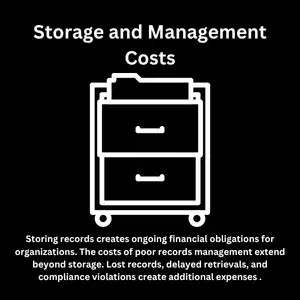
Medical records serve as the backbone of modern healthcare delivery and legal processes. These documents contain critical information that shapes patient care decisions and legal outcomes. As physicians transition to digital systems, new challenges emerge alongside persistent traditional problems. Understanding the common problems associated with medical records helps healthcare organizations, legal professionals, and medical record retrieval services develop effective solutions.
Patient medical records document every aspect of a patient’s health journey. From initial consultations to complex treatment plans, these records capture essential patient data that guides clinical decisions. Healthcare providers rely on accurate information and medical records management to deliver safe, efficient care. When records are incomplete or inaccessible, patient outcomes suffer.
The medical records management and retrieval process has become increasingly complex as data spreads across multiple systems and locations. Most patients receive care from several physicians and healthcare facilities, creating fragmented records that challenge comprehensive care coordination. This fragmentation represents one of the top challenges head on facing the industry today.
Strong medical records management practices and services play a pivotal role in overcoming fragmentation. Ensuring accessibility of test results, treatment plans, and audit trails supports better coordination and outcomes. Addressing privacy concerns and implementing secure, efficient retrieval services are essential steps. Quality medical records management ensures continuity of care while upholding patient confidentiality.
Modern healthcare demands adaptable medical records management strategies and practices that meet evolving needs. As demand for accurate, real time access grows, reliable services become the backbone of health care.

Healthcare organizations face constant threats to data security. Medical data contains sensitive information including individually identifiable health information that cybercriminals actively target. The healthcare industry experiences more data breaches than any other sector, with millions of patient records compromised annually.
A single data breach can expose protected health information for thousands of patients. These incidents carry severe financial penalties under HIPAA rules, with fines reaching millions of dollars. Beyond monetary costs, breaches destroy patient trust and damage organizational reputation. Businesses must invest heavily in security measures to protect sensitive documents and maintain patient privacy.
Electronic medical records require robust security protocols including encryption, secure access controls, and comprehensive audit trails. These systems must track every access attempt and modification to ensure accountability. Healthcare professionals need training on proper data handling to prevent accidental exposure of patient health information.
Compliance creates ongoing challenges for medical records management. The Health Insurance Portability and Accountability Act establishes strict requirements for handling patient information. Organizations must maintain compliance with HIPAA rules while managing competing demands for access to records, especially from doctors and physicians involved in taking care of the patient.
Record retention requirements vary by jurisdiction but typically mandate records be stored for at least six years. Some states require longer retention periods, particularly for pediatric patients. Facilities must track these varying requirements and ensure proper disposal when retention periods expire. Improper disposal of physical records or electronic data can result in significant financial penalties, making efficient medical records management essential.
The medical record retrieval process must balance patient rights with privacy protection. Patients have legal rights to access their records, but organizations must verify identity and protect against unauthorized disclosure. This creates administrative burdens that require careful process oversight. Efficient systems and clear policies are key to managing the process while maintaining legal compliance and ensuring that physicians and other healthcare professionals can access needed data promptly through proper medical records management protocols.

The transition from paper records to electronic health records created new challenges while solving others. Many healthcare organizations maintain hybrid systems combining physical records with electronic systems. This approach complicates records management and creates opportunities for errors.
Electronic records offer advantages including easier access, better data sharing, and improved storage efficiency. However, different systems often cannot communicate effectively, creating data silos within and between organizations. The same patient may have multiple records across different platforms, leading to incomplete clinical pictures.
Artificial intelligence shows promise for improving records management efficiency. AI systems can quickly sort large volumes of records, identify missing information, and flag potential errors. However, these technologies must comply with regulatory standards and maintain data security throughout processing.
Poor data quality undermines the value of medical records. Common problems include incomplete entries, transcription errors, and duplicate medical records. When critical information is missing or incorrect, healthcare providers cannot make fully informed decisions about patient care.
Duplicate medical records create significant challenges for healthcare organizations. When systems fail to recognize the patient across different encounters, multiple records emerge for one individual. This fragmentation can lead to missed allergies, conflicting medication lists, and incomplete treatment histories.
Converting physical medical records to electronic formats introduces additional accuracy risks. Scanning errors, missing pages, and OCR mistakes can corrupt important patient information. Healthcare organizations must implement quality control measures to ensure actual data accuracy throughout the conversion process.
Ensuring medical records are accurately stored, retrieved, and verified is a critical part of the overall process. Without proper oversight, errors in medical records can become permanent and compromise care. A structured process and reliable systems help protect patient safety while keeping data integrity across all stored records.

Storing records creates ongoing financial obligations for organizations. Physical patient data require climate-controlled storage space, which becomes expensive over time. Electronic storage seems cheaper initially but presents its own challenges, including ongoing infrastructure investment and maintenance.
Healthcare businesses must balance storage costs against legal requirements and clinical needs. Cloud storage offers scalability but raises additional security challenges. Organizations must ensure cloud providers meet regulatory standards for handling protected information.
The costs of poor records management extend beyond storage. Lost records, delayed retrievals, and compliance violations create additional expenses that can significantly impact organizational finances. These challenges also affect care delivery, as timely access to accurate records is essential for effective treatment. As organizations manage growing volumes of patient data, improving records systems becomes a necessary priority. Failing to address these financial and operational challenges can hinder both compliance and outcomes, making strong recordkeeping systems a vital part of business strategy.
Accessing patient records when needed remains a persistent challenge. Healthcare providers often struggle to obtain complete patient histories from multiple sources. The medical record retrieval can be time-consuming and expensive, particularly for legal proceedings or insurance claims.
Different facilities use incompatible systems that resist easy medical data sharing. This forces continued reliance on outdated methods like faxing or mailing records. Such approaches are slow, insecure, and prone to errors or loss.
Legal teams and insurance companies face particular challenges obtaining comprehensive records. Hospital records can span hundreds of pages with complex medical terminology. Professional medical record retrieval services help navigate these complexities by gathering records from multiple sources and organizing them for legal review.

Addressing these challenges requires comprehensive strategies that combine technology, policy, and training. Healthcare organizations should prioritize interoperability when selecting electronic health record systems. Standards-based systems that support data exchange reduce fragmentation and improve care coordination.
Staff training plays a critical role in improving records management. Healthcare professionals need regular education on proper data entry, privacy protection, and security protocols. Clear policies should govern access to patient information and outline procedures for handling sensitive data.
Regular audits help identify and correct data quality problems. Organizations should implement systematic reviews of record completeness and accuracy. Automated tools can flag potential duplicates or missing information, allowing staff to address problems proactively.
Professional medical record retrieval services offer valuable support for complex cases. These specialists understand the system and can efficiently gather records from multiple sources. They also provide additional services like record organization, digital conversion, and legal preparation that save time and improve outcomes.
The importance of effective medical records management continues to grow as healthcare becomes more complex and regulated. Organizations that address these common problems head-on gain competitive advantages through improved efficiency, better patient outcomes, and reduced compliance risks.
Technology will continue to offer new solutions for longstanding problems. Artificial intelligence, blockchain, and improved interoperability standards promise to address many current challenges. However, successful implementation requires careful planning and ongoing commitment to best practices.
Healthcare providers, legal professionals, and support services must work together to improve records management across the industry. By understanding common problems and implementing proven solutions, organizations can transform records management from a burden into a strategic advantage.
The future of healthcare depends on accessible, accurate, and secure medical records. Organizations that invest in proper records management today will be better positioned to deliver quality care and achieve positive outcomes for all stakeholders. Success requires ongoing attention to technology, training, and compliance as the landscape continues to change.
Patients receive care across multiple facilities and EHRs that don’t interoperate, creating partial charts scattered across systems. Standardized data exchange, a clear records governance policy, and vendor-neutral archives help consolidate information for complete, timely access.
Use layered security such as encryption at rest and in transit, role-based access, multifactor authentication, and comprehensive audit trails. Pair the technology with least-privilege permissions and regular staff training to reduce breaches while preserving clinician access.
Implement data validation at entry, scanning QA, and routine audits to catch missing fields, OCR errors, and inconsistencies. Deploy a master patient index and deterministic or probabilistic matching to merge duplicates safely without losing clinical history.
Engage a retrieval partner when records span many providers, formats, or jurisdictions or when litigation and insurance deadlines demand speed and completeness. Specialists expedite requests, ensure HIPAA compliance, normalize mixed paper and electronic files, and deliver indexed, searchable productions.
